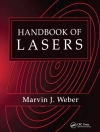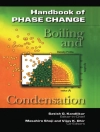’With a strong interdisciplinary approach to a subject that does not lend itself easily to the reference format, this work may not seem to support directly academic programs beyond general research, but it is a more thorough and up-to-date treatment than Taylor and Francis′s 1994 Encyclopedia of Time. Highly recommended.’
—Library Journal STARRED Review
Surveying the major facts, concepts, theories, and speculations that infuse our present comprehension of time, the Encyclopedia of Time: Science, Philosophy, Theology, & Culture explores the contributions of scientists, philosophers, theologians, and creative artists from ancient times to the present. By drawing together into one collection ideas from scholars around the globe and in a wide range of disciplines, this Encyclopedia will provide readers with a greater understanding of and appreciation for the elusive phenomenon experienced as time.
Features
- Surveys historical thought about time, including those ideas that emerged in ancient Greece, early Christianity, the Italian Renaissance, the Age of Enlightenment, and other periods
- Covers the original and lasting insights of evolutionary biologist Charles Darwin, physicist Albert Einstein, philosopher Alfred North Whitehead, and theologian Pierre Teilhard de Chardin
- Discusses the significance of time in the writings of Isaac Asimov, Samuel Taylor Coleridge, Fyodor M. Dostoevsky, Francesco Petrarch, H. G. Wells, and numerous other authors
- Contains the contributions of naturalists and religionists, including astronomers, cosmologists, physicists, chemists, geologists, paleontologists, anthropologists, psychologists, philosophers, and theologians
- Includes artists′ portrayals of the fluidity of time, including painter Salvador Dali′s The Persistence of Memory and The Discovery of America by Christopher Columbus, and writers Gustave Flaubert′s The Temptation of Saint Anthony and Henryk Sienkiewicz′s Quo Vadis
- Provides a truly interdisciplinary approach, with discussions of Aztec, Buddhist, Christian, Egyptian, Ethiopian, Hindu, Islamic, Navajo, and many other cultures′ conceptions of time
Key Themes
- Biography
- Biology/Evolution
- Culture/History
- Geology/Paleontology
- Philosophy
- Physics/Chemistry
- Psychology/Literature
- Religion/Theology
- Theories/Concepts
Om författaren
Dr. H. James Birx is professor of anthropology at Canisius College, distinguished research scholar at the State University of New York at Geneseo, and distinguished visiting professor in the Faculty of Philology at the University of Belgrade. He has been an invited scholar at the University of Cambridge and twice at Harvard University. His publications include authoring the award-winning Theories of Evolution and editing the award-winning Encyclopedia of Anthropology, as well as 400 published reviews, articles, chapters, and encyclopedia entries.Dr. Birx has given invited presentations at prestigious universities and academic institutes from Australia, New Zealand and Mexico to Egypt, Germany and Russia. He has done research at the Galapagos Islands and Koobi Fora in Kenya, Africa (among many other sites). His interests include topics in evolutionary biology and process philosophy. Dr. Birx is presently teaching biological anthropology, forensic anthropology, anthropology and evolution, and theories in anthropology. He has contributed six new ideas to philosophical anthropology: dynamic integrity, will to evolve, emerging teleology, Homo futurensis, exoevolution, and cosmic over beings.Dr. Birx′s cultural interests include movies, music (especially opera), reading novels and global traveling. This year, he has contributed essays to these two forthcoming books: Wagner & Nietzsche (Cambridge University Press) and Humanism, Transhumanism, & Posthumanism (Peter Lang Verlag).












